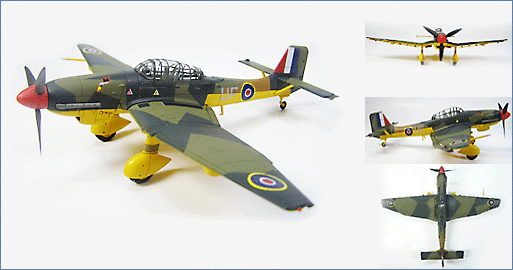Air Power Series>1:72 die-cast display model>Ju87>HA0135
Ju-87 D3 601 Sqn., Sidi Haneish LG13, Nov. 1942 "Captured Stuka"

General Background
The Ju 87 was considered as one of the most important German military aircrafts during WWII. It was better known as the “Stuka” which means “Dive Bomber”.
While the Ju 87 achieved great success during the beginning of WWII due to its accuracy in bombing, it suffered from lack of speed and defense armament. Without the escort of German fighters the Stuka easily became preys for enemy high speed fighters. After the Battle of Britain the Ju 87 was seldom seen in actions in the continent.
In 1940, the Ju 87 D (the “Dora” series), with a more powerful engine Jumo 122F, was developed for the attack of heavily defended targets. In 1943, with the approaching invasion of Russia, the Ju87 G “Gustav” was developed for anti-tank purpose. It was fitted with two 37mm cannons under the main wing and the number 1 ace of it was the legendary Oberst (Colonel) Hans Ulrich Rudel who had achieved over 500 kills of Russian armor include one battle ship destruction.The Aircraft
In late July 1942 eighteen Jeeps with SAS members began their initial attacks on LGs ( British term -Landing Grounds) landing strips. There were a string of these strips around Sidi Haneish 70 miles from El Alamein. During these attacks hundreds of German planes were destroyed but some were captured with little or no damage. The 601 Squadron became the owner of an Italian Air Force Stuka "D" from LG 13. The squadron added RAF markings as well as the squadron code "UF". The "Captured Stuka" had its bombs and machine guns removed and it was used from November 1942 to February 1943.
Specifications :
| Length : | 11.1 m |
| Wingspan : | 13.8 m |

